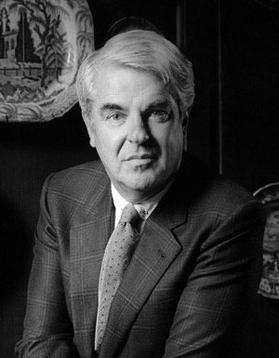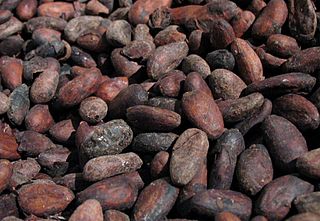Related Research Articles

Bubble and squeak is a British dish made from cooked potatoes and cabbage, mixed together and fried. The food writer Howard Hillman classes it as one of the "great peasant dishes of the world". The dish has been known since at least the 18th century, and in its early versions it contained cooked beef; by the mid-20th century the two vegetables had become the principal ingredients.

French cuisine is the cooking traditions and practices from France. In the 14th century, Guillaume Tirel, a court chef known as "Taillevent", wrote Le Viandier, one of the earliest recipe collections of medieval France. In the 17th century, chefs François Pierre La Varenne and Marie-Antoine Carême spearheaded movements that shifted French cooking away from its foreign influences and developed France's own indigenous style.

The cuisine of Germany consists of many different local or regional cuisines, reflecting the country's federal history. Germany itself is part of the larger cultural region of Central Europe, sharing many culinary traditions with neighbouring countries such as Poland and the Czech Republic. In Northern Europe, in Denmark more specifically, the traditional Danish cuisine had also been influenced by German cuisine in the past, hence several dishes being common between the two countries.

Moroccan cuisine is the cuisine of Morocco, fueled by interactions and exchanges with many cultures and nations over the centuries. Moroccan cuisine is usually a mix of Arab, Berber, Andalusi, and Mediterranean cuisines, with minimal European and sub-Saharan influences. Like the rest of the Maghrebi cuisine, Moroccan cuisine has more in common with Middle Eastern cuisine than with the rest of Africa.

James Hillman was an American psychologist. He studied at, and then guided studies for, the C.G. Jung Institute in Zürich. He founded a movement toward archetypal psychology and retired into private practice, writing and traveling to lecture, until his death at his home in Connecticut.

Elizabeth David was a British cookery writer. In the mid-20th century she strongly influenced the revitalisation of home cookery in her native country and beyond with articles and books about European cuisines and traditional British dishes.

Jane Grigson was an English cookery writer. In the latter part of the 20th century she was the author of the food column for The Observer and wrote numerous books about European cuisines and traditional British dishes. Her work proved influential in promoting British food.

Robert Carrier McMahon, OBE, usually known as Robert Carrier, was an American chef, restaurateur and cookery writer. His success came in England, where he was based from 1953 to 1984, and then from 1994 until his death.

Molecular gastronomy is the scientific approach of cuisine from primarily the perspective of chemistry. The composition, properties and transformations of an ingredient are addressed and utilized in the preparation and appreciation of the ingested products. It is a branch of food science that approaches the preparation and enjoyment of nutrition from the perspective of a scientist at the scale of atoms, molecules, and mixtures.

Sofrito, sofregit, soffritto, or refogado, is a basic preparation in Mediterranean, Latin American, Spanish, Italian and Portuguese cooking. It typically consists of aromatic ingredients cut into small pieces and sautéed or braised in cooking oil for a long period of time over a low heat.

Lebanese cuisine is the culinary traditions and practices originating from Lebanon. It includes an abundance of whole grains, fruits, vegetables, fresh fish and seafood. Poultry is eaten more often than red meat, and when red meat is eaten, it is usually lamb and goat meat. Dishes include copious amounts of garlic and olive oil, and dishes are often seasoned with lemon juice. Chickpeas and parsley are also staples of the Lebanese diet.

Chocolate liqueur is a chocolate flavored liqueur made from a base liquor of whisky or vodka. Unlike chocolate liquor, chocolate liqueur contains alcohol. Chocolate liqueur is often used as an ingredient in mixology, baking, and cooking.
Michael Raymond Donald Ashley is a British bibliographer, author and editor of science fiction, mystery, and fantasy.

Cheese soup is a type of soup prepared using cheese as a primary ingredient, along with milk, broth and/or stock to form its basis. Various additional ingredients are used in its preparation, and various types and styles of cheese soup exist. It is a part of some cuisines in the world, such as American, Colombian, Mexican, Swiss, French, and Tibetan cuisines. Mass-produced cheese soups may be prepared with the addition of food additives to preserve them and enhance flavor. A list of cheese soups is included in this article.
Elizabeth David, the British cookery writer, published eight books in the 34 years between 1950 and 1984; the last was issued eight years before her death. After David's death, her literary executor, Jill Norman, supervised the publication of eight more books, drawing on David's unpublished manuscripts and research and on her published writings for books and magazines.

The cuisine of Baden is considered one of the best regional cuisines in Germany. Nationwide this region features the highest density of star-rated restaurants, similar to the neighbouring region Alsace which does the same for France.

A Greek restaurant is a restaurant that specializes in Greek cuisine. In the United States they tend to be a different affair, varying in types of service, cuisine, menu offerings, table settings, and seating arrangements. Their menu may also feature dishes from other cuisines.
Depending on the counting convention used, and including all titles, charts, and edited collections, there may be currently over 500 books in Isaac Asimov's bibliography—as well as his individual short stories, individual essays, and criticism. For his 100th, 200th, and 300th books, Asimov published Opus 100 (1969), Opus 200 (1979), and Opus 300 (1984), celebrating his writing.
References
- 1 2 "Credentials at Hillmanwonders.com". Archived from the original on 2007-01-29. Retrieved 2007-01-14.